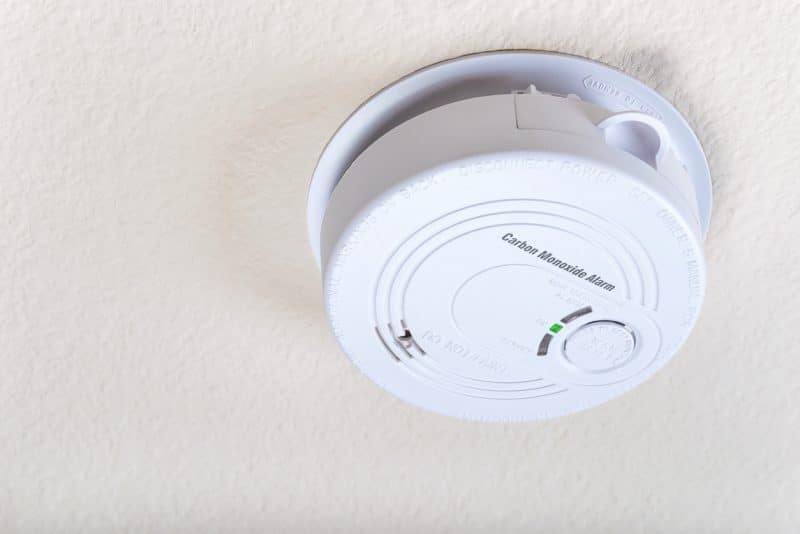
Everyone knows that having reliable carbon monoxide detectors is crucial once the temperatures drop and the heating system is needed. But, if you have gas-fired appliances such as a range, water heater, or generator, your CO detectors are vital year-round, especially in summer, when your home is closed up against the heat and humidity.
How CO Detectors Save Lives
Carbon monoxide is formed during fossil fuel combustion — a natural, inevitable process — and has no odor or taste. When inhaled, CO attaches to hemoglobin in the blood, and starves the brain and body of vital oxygen. CO detectors are equipped with sensors that can detect this lethal gas in your indoor air and emit a loud alarm that protects your family in two key ways:
- By warning against low levels of gas that cause debilitating, flu-like symptoms of CO poisoning, like nausea, fatigue, dizziness and headaches.
- By alerting you to sudden, high concentrations of CO that can quickly cause unconsciousness, permanent brain damage, coma and death.
Caring for Your CO Detectors is Key
Having carbon monoxide detectors installed on each level of your home is the first step toward protecting your family against accidental poisoning. To ensure that your detectors can do their job, you also need to:
- Test each device at least once a month. Simply press the test button and listen for a high-pitched beeping noise that tells you the unit is working properly.
- Follow the manufacturer's instructions regarding battery replacement. According to the S. Consumer Product Safety Commission, fresh batteries should be installed at least once a year.
- Replace aging detectors promptly. CO detectors have a lifespan of just five to seven years, and they're equipped with an audible end-of-life signal that warns when they need replacement.
- Keep your home's gas-burning equipment and appliances properly maintained. Devices like your gas furnace should be inspected and cleaned annually by a knowledgeable heating contractor to ensure that it's operating safely and reduce your risk of CO exposure.
Contact us at Jackson & Sons to schedule a professional HVAC system maintenance and ensure that your carbon monoxide detectors can do their job of protecting your Eastern North Carolina home.
Jackson & Sons, Inc.
Our goal is to help educate our customers in Eastern North Carolina (including Wayne, Johnston, Greene, Lenoir, Pitt and Duplin Counties) about energy and home comfort issues (specific to HVAC systems).
Credit/Copyright Attribution: “iStock”